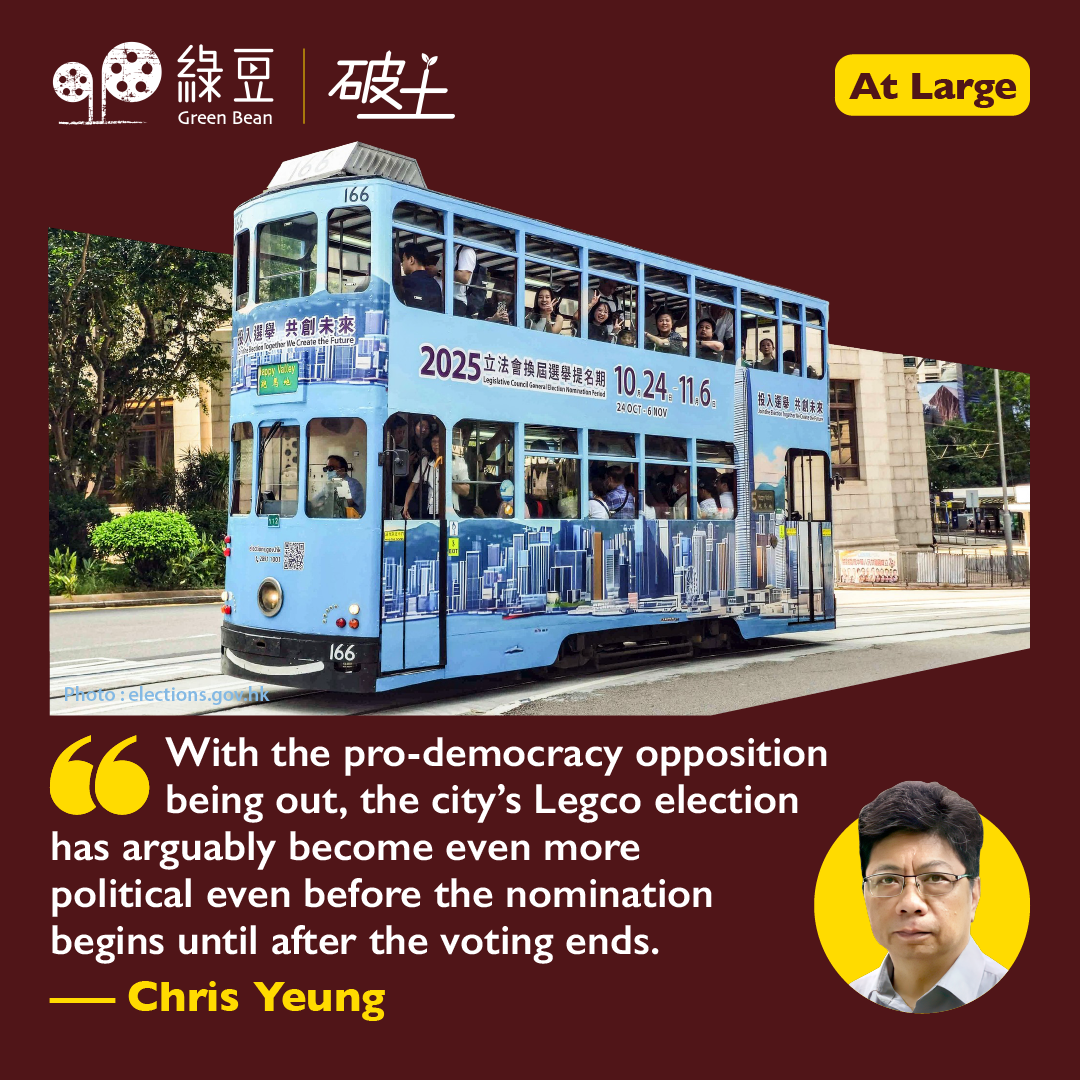Legco election process more surprises, not results

Every vote counts in an election. Election is election is election. One vote can make a huge difference in election results. And results are above everything, in particular to the candidates, their supporters and the interests they represent.
Seen from that perspective, the coming Legislative Council election is arguably quite different. Results of the balloting on December 7 are less significant than the electoral process, which is supposed to be fair and open.
This is plainly because whoever grabs the seats in most, if not all, constituencies after ballots are counted makes little difference to a sizable portion of the 4.13 million registered voters. To them, the contestants who have succeeded in crossing the nomination hurdles belong to the same blessed camp. Who wins doesn’t matter to them.
It may not be fair and accurate though, for instance, to say the Democratic Alliance for the Betterment and Progress of Hong Kong and the Federation of Trade Unions are just the same. They are two separate political groups. But from the perspective of what they stand for, they look like twins.
The seismic changes in Hong Kong’s election
Judging from the profiles of the contestants who have submitted their nominations since October 24, it looks certain no aspirants with pro-democracy background, not to say political affiliations, will be able to enter the fray.
The seismic changes in Hong Kong’s election could not be more apparent.
Flashed back to the 2016 Legislative Council election. More than two million voters had cast their votes, representing a historic turnout of 58 per cent. Of them, more than half cast their votes on the pan-democrats.
Then came the electoral overhaul in 2021. The Legco election held later that year saw no pan-democrats in the race. Voter turnout plunged to a new low of 30.2%.
Still, the 2021 race saw a small number of Democrats and small “d” democrats contemplating the idea of contesting a seat before the nomination period began. They failed to get the nominations as required. There has been none of that kind in the ongoing 2025 Legco election.
History is in the making with the emergence of more changes featuring a different nomination game in the city’s “patriots-only” election, which began with what has been coined as a “wave” of incumbents bowing out led by lawmakers who are aged 70 or above.
They won praise for their “exemplary conduct and nobility of character” in a commentary posted on the State Council’s Hong Kong and Macau Affairs Office.
They know better than anyone whether their acts are noble or not. Judging from the developments unfolded in those vacated constituencies, it seems that they have been caught unprepared for finding successors.
The unprecedented announcements of almost one-third of incumbent legislators, which has unsurprisingly confirmed the rumour widely circulated in the political circle in the past few months, signify a significant change in the city’s election exercise.
The city’s biggest-ever voter-mobilisation exercise
For the publicised or unspoken reasons, a sizable number of incumbent legislators have taken the initiatives of vacating their seats for other aspirants. A fuller picture of those who have got a pass of the first round of nomination will emerge on November 6 when the nomination period ends.
It takes two to tango in an election, namely the candidates and the voters. No one has a crystal ball to tell how many people will come out to vote on December 7. There is no doubt, however, the coming election will see the city’s biggest-ever voter-mobilisation exercise led by the John Lee administration with the backing of the central authorities.
Never seen since the first direct polls for the colonial Legislative Council in 1991, the mobilisation campaign features both direct appeals and incentives in the form of paid leave and transport subsidies for those who cast their votes. More innovative incentives are likely to come.
Speaking at an election kick-off ceremony on October 23, Chief Executive John Lee has urged people to vote, saying the government will mobilise all sectors to participate in the election. He specifically called on businesses to facilitate voting for employees.
Political duty?
On last Tuesday (Oct 28), he issued a letter to all civil servants strongly calling on them to vote in the December 7 election. He pointed to the Civil Service Code which required civil servants to support the local administration’s governance. Casting votes in elections, he told civil servants, were not just a fulfilment of their civil responsibilities, but also “a manifestation of civil servants’ upholding of the Basic Law and their allegiance to Hong Kong as pledged in their oath. He sidestepped a question on whether any civil servants who did not vote would be penalised.
On Thursday, Sino Group became the first big enterprise to encourage all employees to vote with an offer of a half day’s leave for them. More business companies are set to make similar moves to help incentivise their employees to cast their votes.
Corporate social responsibility is nothing new nowadays. What about corporate civic responsibility and corporate political duty?
With the pro-democracy opposition being out, the city’s Legco election has arguably become even more political even before the nomination begins until after the voting ends.
▌ [At Large] About the Author
Chris Yeung is a veteran journalist, a founder and chief writer of the now-disbanded CitizenNews; he now runs a daily news commentary channel on Youtube. He had formerly worked with the South China Morning Post and the Hong Kong Economic Journal.